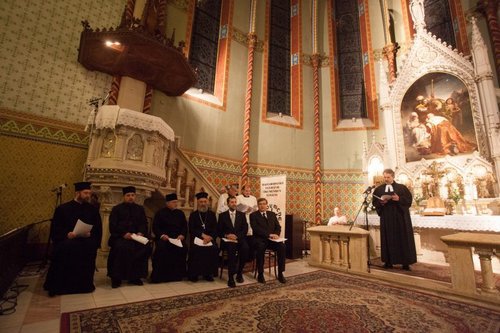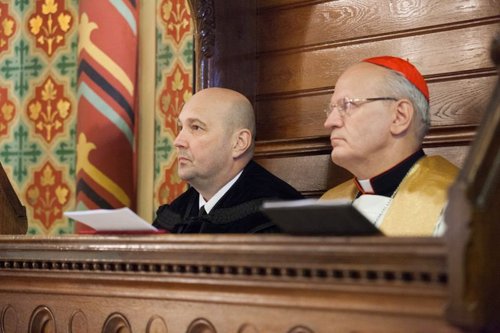The Student Christian Movement in India was invited to prepare the prayer and litany materials for this year's WPCU. Together with the All India Catholic University Federation and the National Council of Churches in India, they examined the importance of unity in a country where the caste system continues to divide people on the grounds of ritual purity and pollution.
There was specific reflection on the Dalit community in India, which is considered below even the caste system. They are the outcasts, socially marginalized, politically under-represented, economically exploited and culturally subjugated group. According to the WPCU worship resources, 80 percent of Christians in India come from a Dalit background. This caste system only serves to increase the distance between Churches across the country.
With this context in mind, ecumenical councils around the world focused on the Biblical text and Micah's call for justice. Vilmos Fischl, the General Secretary of the ECCH said that the Dalit circumstances intertwined with this year's theme is applicable regardless of cultural background. "There are people outcast in every country. This is why the theme is an important focus. Our task is to show that there are people marginalized in Hungary as well. There are people who are suffering, and we can show sympathy and tolerance to them," he said.

The Council incorporated Dalit culture into the opening service of the WPCU at the Budapest Fasor Lutheran Church with a traditional drum cadence for the worship procession. The 11 member Churches of the ECCH as well as Churches in service to the Council led this opening worship. In its invitation, the ECCH said, "In 2013, the Holy Spirit wants us to listen in an ecumenical community to His will, because he has not give up on us."
The opening worship service started the WPCU with sermons by Dr. Péter Erdő the Archbishop of Esztergom-Budapest and József Steinbach, bishop of the Transdanubian Reformed Church District and president of ECCH. Erdő preached on Luke 24 and the Disciples' walk to Emmaus. He emphasized that we meet Christ in the Holy Scripture, in breaking the bread, in a community of believers and through those people – like Peter- who were chosen by God to be a personal witness to Him. As Erdő said, this meeting is the source of our joy and energy, "We have a common news, joy, mission – we need the unity, the world needs our witnessing unity. We need to strive for this with faith and humility."
Steinbach preached about a dialogue that is pleasing to God. He said the basis of dialogue is listening. God likes it when his people listen to each other as equal partners, they praise the Lord together, remember what He has done and share it with their children – that is how they fill the traditional frame with content. If anyone looks at it, they will be joyful.

The true unity, however, must occur on a local level. László Pál, pastor of the Kálvin tér Reformed Church participates in WPCU services with another Reformed, a Lutheran and two Roman Catholic congregations every year – something that would have been unthinkable 50 years ago. "People couldn't even imagine a Roman Catholic priest entering a Reformed church, in Hungary at least," Pál said.
Now, the five churches gather together for preparatory meetings to discuss the liturgy, who will preach as well as the venue for each day, and they also participate in worship together throughout the week. There is a different theme and focus each night, while the location of the service and the pastor delivering the message also rotates. This week, Reformed and Lutheran pastors are welcomed behind Catholic pulpits and vice versa.
"It some how forces us, in a good sense, to come together in preparation," Pál said, "to have a good time together, but to think about the Bible and hope that something more comes out of this process – more than just a celebration."
You can find the entire liturgy from this year's WPCU here.
Additionally, the RCH's Hungarian website is publishing a series of sermons and meditations for each day of the Week of Prayer written by pastors from our sister churches who are members of the ECCH. Here is one devotional from the series by Frank Hegedüs, pastor of the St. Margaret' Anglican Episcopal Church in Budapest.
Amy Lester